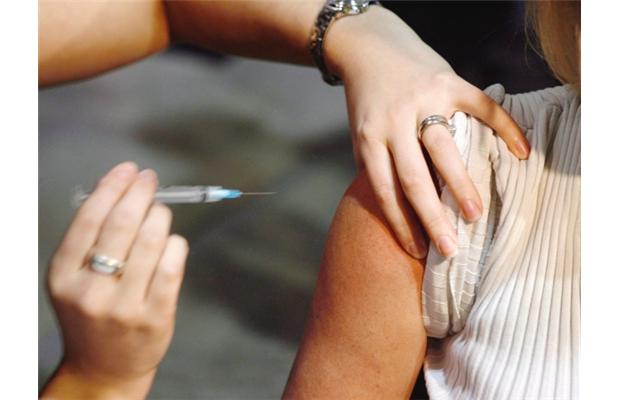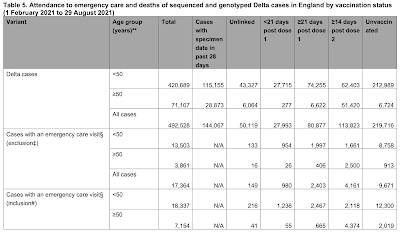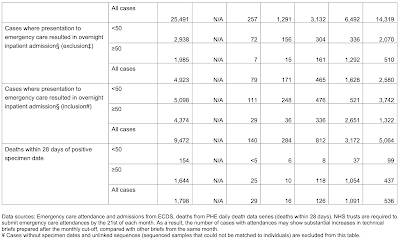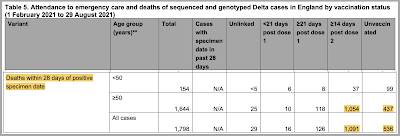
In the latest edition (Technical briefing 22) of Public Health England's SARS-CoV-2 variants of concern and variants under investigation in England dated September 3, 2021, we find this table:
This table shows that completely unvaccinated individuals of all ages are 1.93 times more likely to be diagnosed with the Delta variant of SARS-CoV-2 when compared to fully vaccinated individuals (defined as the second dose being administered 14 days or more prior to the test). Things look at bit different based on age with fully vaccinated individuals 50 years and older being 7.65 times more likely to test positive for the Delta variant than individuals who have not been vaccinated whereas fully vaccinated individuals under the age of 50 are 3.41 times less likely to test positive for the Delta variant than those who are unvaccinated.
Now, let's focus on the last row:
From this data, it would certainly appear that fully vaccinated individuals of all ages which, once again, is defined as those who were vaccinated 14 or more days prior, would appear to be 2.04 times more likely to die from the Delta variant of the SARS-CoV-2 virus than those who have not been vaccinated. This also varies with age; fully vaccinated individuals 50 years and older are 2.41 times more likely to test positive for the Delta variant than individuals who have not been vaccinated whereas fully vaccinated individuals under the age of 50 are 2.68 times less likely to test positive for the Delta variant.
Are there any explanations that anyone would care to share? Are we seeing antibody dependent enhancement (ADE) among the fully vaccinated or is it just an artifact of a sampling issue or something else? I'm open to any ideas that you may be able to provide me with. This is not the first week that this issue has shown up in Public Health England's weekly data release so it's not just a one-off occurrence.
You can publish this article on your website as long as you provide a link back to this page.




Be the first to comment